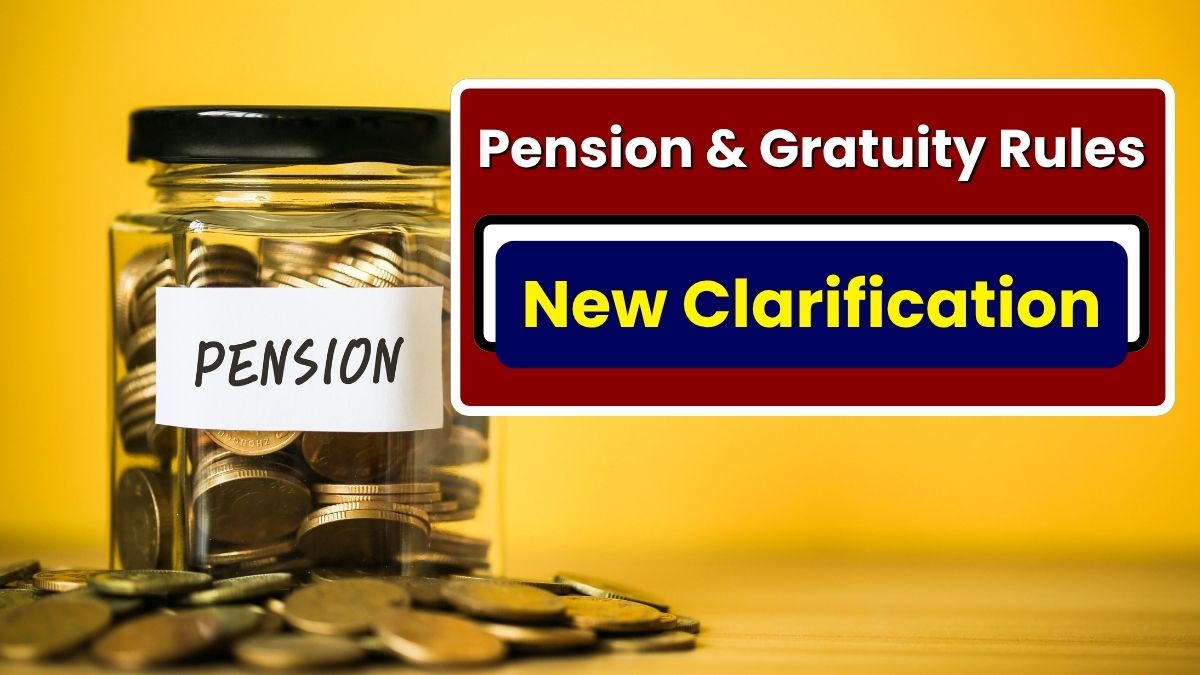When the central government released a fresh clarification on pension and gratuity rules, it cleared a lot of confusion — but it also reminded employees how crucial it is to understand their service timeline. And honestly, from what I’ve seen, many people don’t realize how much difference a few months of service can make.
What Has the Government Clarified?
The latest update comes through an official memorandum linked to Rule 44 of the Central Civil Services (Pension) Rules, 2021.
It focuses on one specific situation: compulsory retirement.
Not super pleasant to think about, I know.
But it’s better to understand the rules now than be surprised later.
According to the government, your final pension or gratuity depends on two things:
- Your total eligible service
- Approval from the competent authority
If You’ve Completed 10 Years of Service
This is the turning point.
If a central government employee is compulsorily retired after completing 10 years of service, they will receive a compulsory retirement pension.
This pension is treated as a portion of the superannuation pension (the pension you would normally get at regular retirement).
But here’s the catch:
The exact percentage you receive isn’t automatic. The competent authority decides it after reviewing the service history.
Think of it like this — the pension exists, but the size of it depends on the final approval.
If You Retire Before Completing 10 Years
This is where things shift dramatically.
Anyone forced to retire before 10 years of service won’t receive a pension at all.
Instead, they get a service gratuity — a one-time payment.
Like the pension, this gratuity is also a percentage of your superannuation gratuity and again requires approval before release.
So yes, even in compulsory retirement, the system follows a structured evaluation rather than giving automatic benefits.
Why This Matters So Much
I’ve met employees who casually say, “I’m close to ten years… it won’t matter,” but when the rules are this clear, it absolutely matters.
Completing just a few extra months could be the difference between:
- A lifelong pension, or
- A one-time lump-sum gratuity
That’s a huge financial gap — especially for anyone planning long-term stability.
The government has now told all ministries to ensure every employee understands these rules. And honestly, that’s overdue. Too many workers reach the end of their service without knowing what they’re truly entitled to.
What Should Employees Do Now?
If you’re nearing ten years of service — or even a little unsure about where you stand — take this seriously.
Here’s what I’d suggest:
- Talk to your pension or HR officer if you’re anywhere near the 10-year threshold.
- Check your service book; make sure everything is up-to-date.
- Verify your records, especially if you’ve had transfers or breaks in service.
- Plan ahead — retirement benefits are a part of your long-term security.
A small misunderstanding today can create a big financial gap tomorrow.
This clarification isn’t just a policy update; it’s a reminder to stay informed and safeguard your retirement.
Frequently Asked Questions
1. What is the main rule regarding compulsory retirement pension?
If an employee completes at least 10 years of eligible service, they may receive a compulsory retirement pension. The percentage depends on approval from the competent authority.
2. What if I’m compulsorily retired before completing 10 years?
You won’t get a pension. Instead, you’ll receive a service gratuity — a one-time benefit that also requires approval before release.
3. Why has the government issued this clarification now?
To ensure employees understand their actual entitlements and avoid confusion. This helps with better retirement planning and prevents misunderstandings during compulsory retirement cases.












